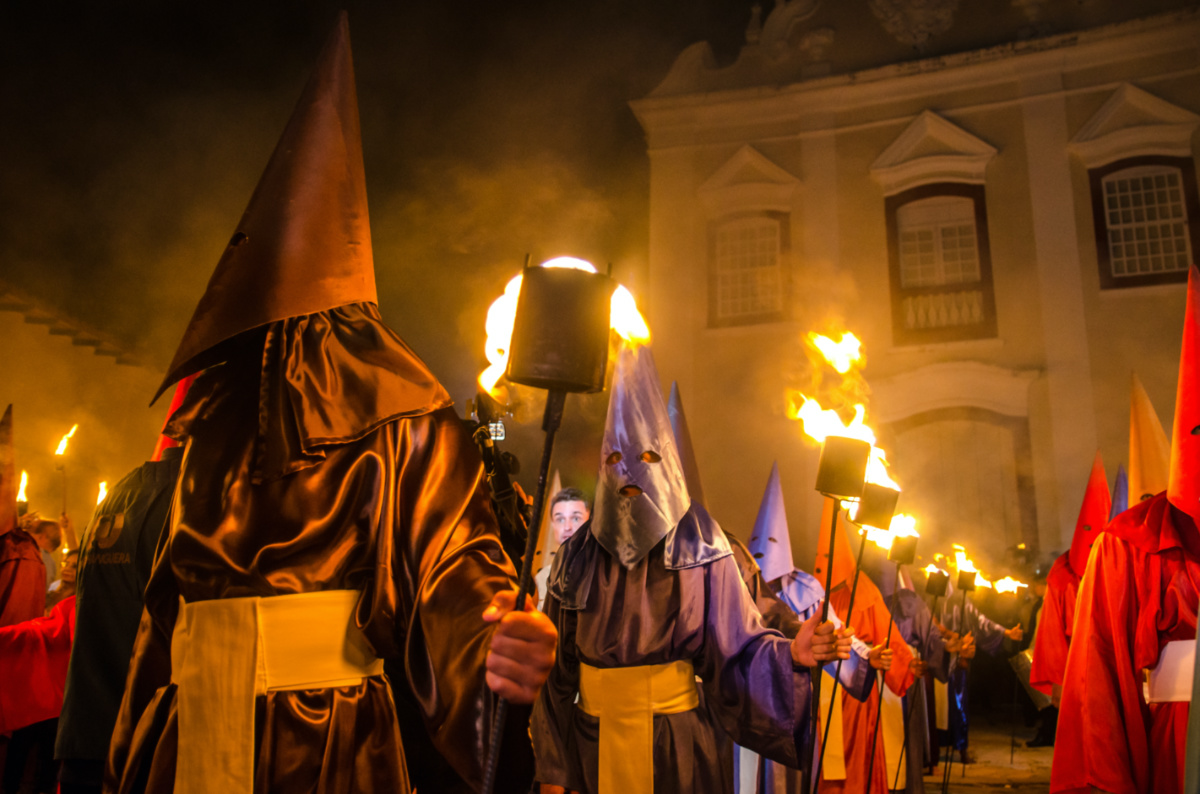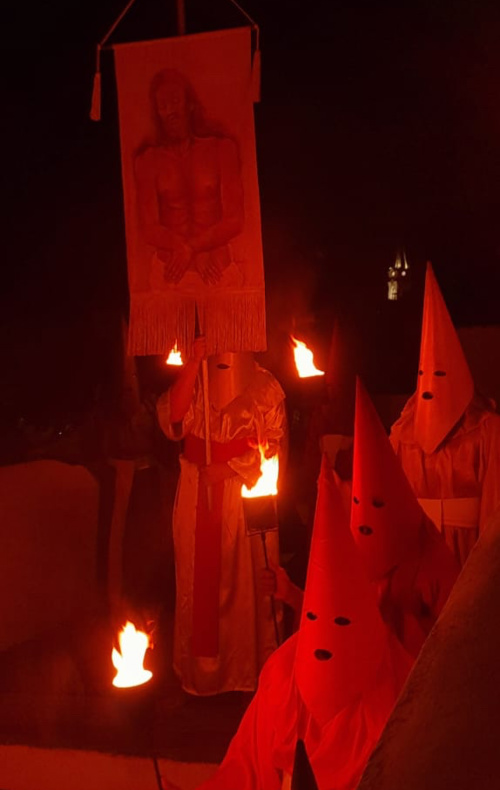São Paulo, Brazil
A centuries-old Catholic procession organised on Holy Thursday in the Brazilian city of Goiás sparked controversy this year after some social media users compared it with a Ku Klux Klan parade.
The attacks on the Procession of the Torches received an indignant response from participants, who emphasise that the event is much older than the white supremacist group in the United States.

The Procession of the Torches seen in Goiás in 2017. PICTURE: Erica Catarina Pontes/Shutterstock
That was not the first time that internet users have compared the outfit of the procession’s participants – conical hoods with eye holes and single-coloured robes – with the one adopted by the KKK. But this year the social media posts about it went viral.
One user, for example, published a few pictures of the paraders carrying torches and asked: “Just between us, this Procession of the Torches in Goiás is a bit awkward, isn’t it?” His post was viewed by more than 1.9 million people. Many people who commented it expressed astonishment and argued that the event should be cancelled – or at least the outfit should be changed.
“We received those reactions and commentaries with perplexity,” said Rodrigo Pássarus, who heads the association in charge of the procession. “Those people do not have historical knowledge.”
Pássarus explained that the tradition began with a Spanish-born priest in 1745. The Procession of the Torches was one among several re-enactments of the Gospel connected to the celebration of Easter.
“We tell the story of the search and imprisonment of Jesus. The temple’s guards look for Him with their torches – all lights are turned off – and walk through the streets of our city.”
Those guards, called ‘farricocos’, used to be only one among the characters of the procession but over the years they became the central part of it, explained Clovis Britto, a sociology professor at the University of Brasília who has authored several books on the Easter festivities in Goiás State.
“The ‘farricocos’ hood is related to the conical hats imposed by the Inquisition on the people it arrested,” he told Sight. “It was adopted by the procession’s members as a signal of penance.”
In Italy, in the Iberian Peninsula, and in countries colonised by Portugal and Spain, the use of those hoods – known as ‘capirotes’ – is common during Easter celebrations, especially during parades organised by brotherhoods.

Participants in the 2023 Procession of the Torches carrying a banner depicting Jesus. PICTURE: Courtesy of Rodrigo Pássarus
The ‘farricocos’, Britto emphasised, have always been portrayed by penitents, who saw the procession as a way of expiating their sins.
“The whole commemoration takes three weeks,” he explained. “It begins with re-enactments of Jesus’ arrival to Jerusalem and goes all the way to Resurrection. Those who played the ‘farricocos’ are the same ones who announce the Gospel’s message a few days later.”
At the end of the 19th century, with a new influx of Roman doctrine in the Brazilian Catholic Church – till then marked by popular traditions – events like the Procession of the Torches were gradually extinguished.
In the 1960s, a new generation of researchers decided to investigate historical records and listen to the ancient residents of the city of Goiás in order to resume the tradition. Since then, the procession has been organised every year and draws thousands of visitors to the city.
“It was about to be forgotten and now it is part of our religious and cultural heritage. Its real meaning is connected to the love of the people of our community, who get together to tell the story of the last moments of Jesus’ life,” Pássarus defined.
The procession is paraliturgical in nature – it is promoted by lay people gathered in a cultural association but also has religious significance. The local bishop even gives a homily during the parade.
“That is why its participants feel so disrespected with the comparison with the KKK,” said Britto. “It involves their affection and their spirituality.”
He emphasised that the different movements named KKK in the United States are anti-Catholic and despise human rights, so they cannot have any relation with the Procession of the Torches and its meanings.
“That is an effort of misinformation,” Britto said. “People have to understand the deep theological and cultural significance of the procession.”
For Pássarus, “to compare it with the KKK is a form of intolerance”.
“We need the people to look for trustworthy information about what we do and try to understand our message,” he concluded.






